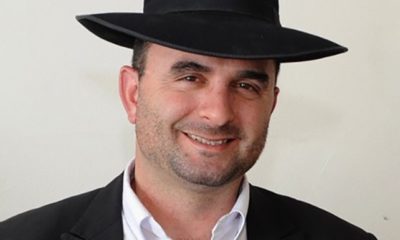
Religion

Long live the king and queen in all of us
It’s the talk of the town, everywhere. Even in our blessed era of liberal democracies, it’s quite amazing how the news about Queen Elizabeth’s passing and King Charles’s ascent to the throne has captured media headlines around the world.
Our people have had a complicated relationship with monarchies throughout history, since the termination of our own sovereignty in Israel two millennia ago. We have endured the cruel heartlessness of dictatorships from certain emperors, czars, and kings, and enjoyed recognition, respect, and favour with others.
Ideally, a monarch is a benevolent benefactor and protector of all their subjects. Maimonides defines a monarch as “the heart of the nation”, its source of life. And, in spite of the role today being largely symbolic, the late queen was still revered.
In 1917, Czar Nicholas II was assassinated by the Bolsheviks in Russia. The czar was renowned for his tyrannic rule. His death was a reprieve welcomed by many. I’m told that at the time, my great grandfather, Reb Dovid Horodoker, cried upon hearing of the czar’s demise. He was no stranger to the czar’s ruthless governance, and acquaintances were shocked at his mourning of this oppressor. Horodoker explained that throughout the texts, prayers, and tales of our heritage, we often find the metaphor of Hashem’s relationship with us as that of a king and his nation. “I mourn the loss of a tangible illustration of this metaphor, the corporeal representation of an ultimate universal king,” he said.
Jewish teaching makes extensive use of metaphors to explain the nature of G‑d’s relationship with us. So many liturgies in the high holiday machzor are replete with descriptions of G-d’s sovereignty and kingdom. A central prayer that we recite is Avinu Malkeinu, describing G-d as “our father – our king”. In fact, the entire Rosh Hashanah revolves around the idea that G-d is “king of the universe”. Certainly there’s a message that we can glean from the monarchy.
The Torah teaches that we’re all royal. Each of us in our microcosm is a monarch. When faced with life’s struggles, we ought to consider that perspective for moral clarity. Throughout life, the impact of our personal monarchy broadens. Parents give their children a strong sense of family, communal leaders inspire their followers with a sense of purpose, and so on.
Royals are distinct. They are expected to behave in a more refined manner. Their differences from society are a source of pride.
For us Jewish royals, we also have a rule book, the code of Jewish law, which shapes our way of life, such that in all behaviour, we’re recognisable and distinct. As such, we can resist the lesser influences pervading the world around us. Jews live with an inner conviction that our path as outlined by the supreme king of kings is correct, regardless of the opinion of others. That’s genuine royal behaviour.










